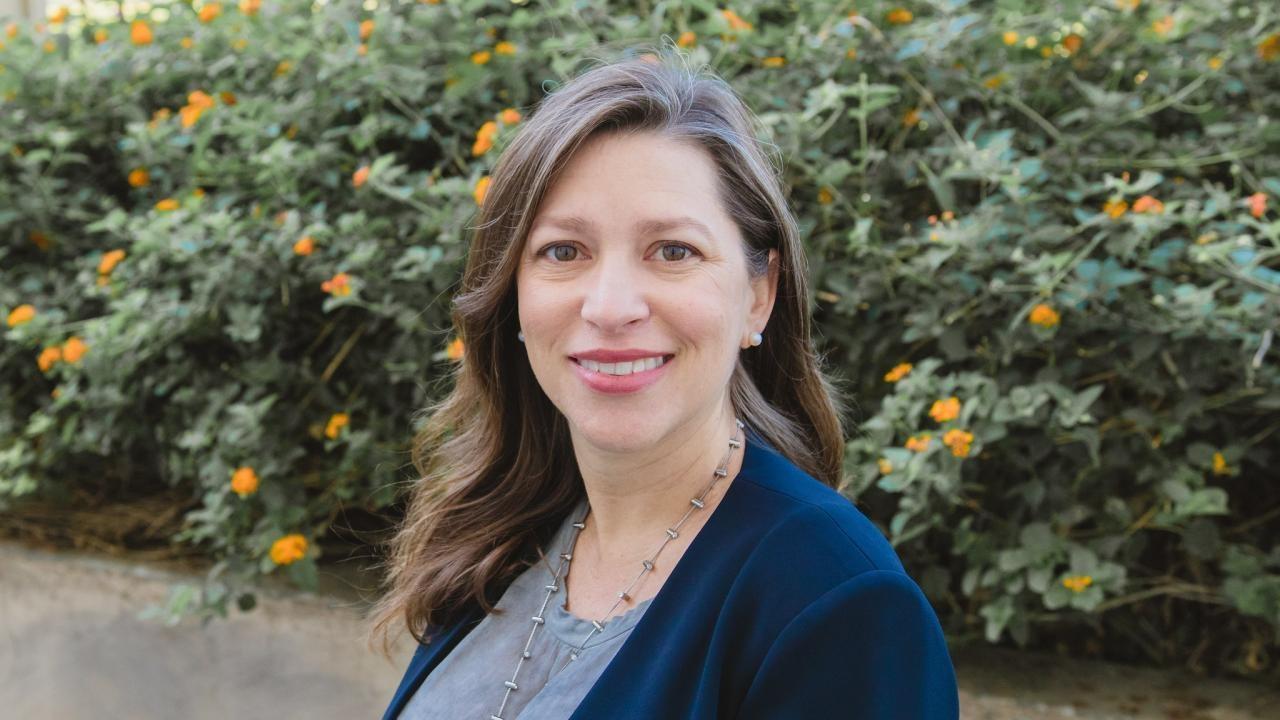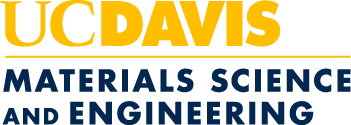
Faculty Spotlight: Marina Leite
This spotlight is part of the College of Engineering 2022 International Women's Day feature.
Describe your personal and professional background and current role in the College of Engineering.
I did my undergrad in chemistry and Ph.D. in physics, both in Brazil. While a Ph.D. student, I was a visiting researcher at the Max Planck Institute for Solid State Research in Stuttgart (Germany) and at the Department of Applied Physics at Eindhoven University of Technology (The Netherlands) working with semiconductor materials. I started working with solar cells when I was a post-doctoral scholar at Caltech between 2008 and 2011. After a 2-year appointment at NIST, I moved to the University of Maryland as an assistant professor, and then became an associate professor. I am currently an associate professor in the Department of Materials Science and Engineering and a UC Davis Chancellor's Fellow.
What led you to the engineering field?
My parents are both professors. My mother is a pure mathematician (and my major role model!), and my father is a physicist. Thus, I've always been around academics. Since we were young girls, my sister (today a professor in chemical engineering) and I would pretend we were faculty, and this fun game suddenly became our reality. I always liked math and the possibility of having intellectual freedom to work on scientific problems that I find interesting. Engineering is at the intersection of fundamental and applied research, which I find perfectly aligned with one of my long-term career goals: doing science that can help our society mitigate climate change.
Highlight your current research. What do you love about it, why are you excited and how do you stay motivated?
Broadly, my current research is focused on functional materials for clean energy. I have active projects related to: developing stable, high-performing and low-cost solar cells, creating new designs and materials for energy harvesting systems (e.g. metallic materials for photocatalysis and optical emitters for thermophotovoltaics), and understanding and controlling undesired chemical reactions that take place in all-solid-state batteries. I am very excited about these projects because we are creating new materials for clean energy and analyzing their behavior by implementing state-of-the-art tools. For instance, we use high-throughput optical measurements and machine learning to forecast the response of materials for solar cells. We have also been realizing microscopic methods to quantify chemical and physical processes with nanoscale spatial resolution. I stay motivated by working closely with talented, self-motivated students who work tirelessly towards their Ph.D. degrees - it is a real pleasure to mentor students.
The 2022 International Women’s Day theme is #BreakTheBias. How do you support gender equity and #BreakTheBias in the engineering field?
I support gender equity by providing students from traditionally underrepresented groups with research opportunities in my group while mentoring them. I currently advise six female graduate students; they are all making so much progress in their projects! Of all 35 students I've advised as a faculty, 50% are female students. I also think that achieving recognition is critical for female researchers, including salary. Currently, there is a well-known salary discrepancy for early-career engineers in the US where, on average, male workers are offered more than $4,000 yearly over women workers with similar qualifications. This number is concerning to me; as expected, it diverges and leads to even larger gaps with time. To improve gender equity in this realm, I have assisted several female group members in the past in negotiating their salaries when moving to positions in academia and companies. I can't wait to see gender equality in engineering!
